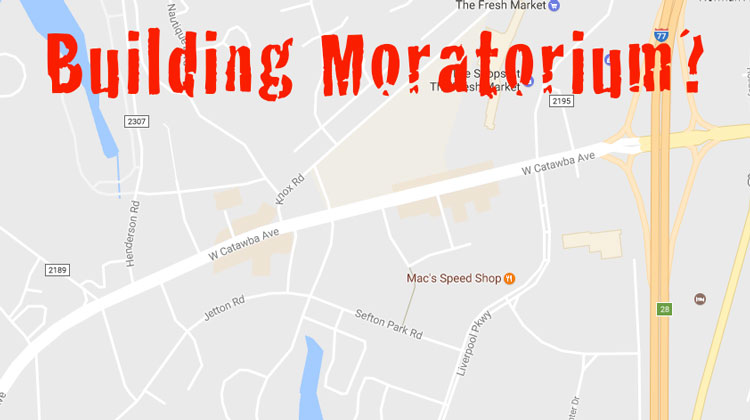
Nov. 22. By Dave Vieser. People concerned about the number of residential projects approved in Cornelius during the past several years have suggested that the town should impose a building moratorium to put the brakes on new construction. In fact, the four successful challengers who were elected to the Town Board pledged to call a “time-out” for six months on multi-family residential projects.
But there’s a big difference between simply calling for a moratorium during a campaign and adopting a process which could withstand anticipated legal challenges.
Does the town qualify for a moratorium?
Statewide, the most common length of a moratorium historically has been either six months or one year. The criteria is a matter of state law.
Cornelius’ Deputy Town Manager Wayne Herron says a municipality must meet one or more of the following three specific criteria:

Wayne Herron
1. A development emergency. The argument would be made that some use or some area of the town is being developed in a way that is detrimental to the Town or its citizens and cannot be mitigated or controlled by the current zoning process. That process in Cornelius usually involves a conditional zoning hearing
2. An urgent need to update the town’s Land Use Plan.
3. An urgent need to update the town’s Zoning Code.
Land Use Plan update nearing an end
Cornelius is currently nearing the end of a Land Use plan update, and has spent five years preparing a Zoning Code update (2013 to 2018) adopting the new revised code in 2018. Herron believes those actions would limit the town’s ability to comply with either options 2 or 3 for a moratorium.
Development emergency?
That would leave the first option—a development emergency—as the strongest potential criteria for a building moratorium. Even that could be a tough sell since Cornelius uses a procedure which usually incorporates a conditional zoning hearing into the process. With conditional zoning the town allows a change in zoning activities subject to certain conditions that are designed to protect adjacent land from the the loss of use value which might occur, if the new zoning activities are allowed without any sort of restrictions..
Citizens and commissioners may have legitimately different feelings about a moratorium, but a simple difference in philosophy or difference in opinion itself would not meet the legal requirements for the adoption of a moratorium. Proof that development is or could be detrimental would have to withstand likely legal challenges.
2007 Cornelius moratorium
In 2006, the town created a Growth Management Committee to prioritize guidance for development in Cornelius. One of the key recommendations from the committee was to curtail residential growth, in favor of economic development and quality of life.

Ross
On Feb. 19, 2007 by a vote of 4-1, a six-month moratorium was adopted. Commissioner Thurman Ross was on the Town Board at the time and he was the lone dissenter.
Before the election, Ross told Cornelius Today he would not support a moratorium at this time either. However, his opinion became moot on Election Day when he was not re-elected.
Voting in favor of the measure back in 2007 was long-time town board member Dave Gilroy who will be back on the board on Dec. 6.
“A six-month time-out on large-scale residential projects, just as in 2007, will allow time for us to update our land development planning, to reflect what our community can support and what citizens actually want,”

Dave Gilroy comments at a Town Board meeting in 2020
Gilroy said.
There are four specific areas of information detail what must be included in the adoption process:
• A clear statement of the problem(s) which necessitates a moratorium.
• A clear statement of the development approvals subject to the moratorium.
• End date for the moratorium.
• A list of the actions to be taken by the town during the moratorium to address the problems which generated the situation.




